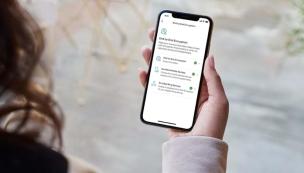How to get the most out of your Ring privacy and security features
As we increasingly rely on connected devices to keep our homes and businesses safe, companies like Ring are always working to help protect customers’ personal information. Below are some tips to help you keep your data, devices and accounts safe, plus a few extra pointers if you want to take your security to the next level.
Privacy and security by default
Ring has industry leading privacy and security protections in place to help keep customer videos and personal information safe. By default, all Ring videos are encrypted at rest, and in transit to Ring’s cloud. Customer accounts are protected by strong and complex password requirements and mandatory 2-Step Verification for all customers. Ring also actively scans for and notifies customers if they’re logging in with a username and password combination that may have been exposed online as part of a non-Ring breach.
Ring features you don’t want to miss
Ring makes it easy for customers to understand and manage important privacy and security settings. Here are some steps you can take to maximize your privacy and security.
- Get familiar with the Control Center in the Ring App: This easy-to-use dashboard provides all the tools you’ll need to manage your account.
- Customize Motion Zones: the Motion Zones feature allows you to establish specific areas you want your camera to record when it detects motion while ignoring high-traffic areas that you don’t need to be notified of — for instance, you may want to ignore traffic on your road but still capture footage whenever there’s movement in your yard.
- Set up Privacy Zones: Do you want certain areas in your camera’s field of view to be completely ignored, like your neighbor’s front door? Or, if you have an indoor camera, the path between your bedroom and bathroom? With Privacy Zones, you can restrict specific areas of the feed so even as the camera records, it will only show a black bar over the designated Privacy Zones.
- Elect audio settings: You can use the Audio Toggle to disable audio recording from chosen devices.
- Enroll your devices in Video-End-to-End Encryption: Ring knows customers have different privacy needs. That’s why customers have the option of enabling Video End-to-End Encryption (E2EE), an advanced encryption option which gives only your enrolled mobile device the special key to unlock your videos.
- Take advantage of Ring’s Deactivated Device State and Secure Device Transfer process: Whether you’re moving to a new home or upgrading to a new Ring device, you don’t have to manually download videos associated with your old device to avoid losing them. Ring subscribers can place any device into the Deactivated Device State to continue to securely access saved events and videos on your Ring account even after ownership is transferred to a different user. This feature provides privacy and peace of mind, knowing that your videos and events are securely stored and accessible.

Next-level tips
Whether it’s your Ring account or other online accounts, here are a few more best practices you can work in to make sure you’re keeping your data and information as safe as possible.
Use a password manager
A complex, unique password and two-factor authentication go the extra step to protect you and your information from bad actors, and you should set them up for all of your other accounts. If you’re struggling to remember all the passwords you’re creating, you can use a password manager app or browser plug-in to keep track of them — just make sure to use an especially robust password for the manager.
Secure your mobile phone account with a PIN
Since many two-factor authentication methods send the codes to your phone for verification, you can further improve your security by setting a PIN for your mobile phone account. This can prevent attackers from taking over your phone account and accessing the texted two-factor codes. Many mobile carriers will allow you to set up a PIN on their website or by calling customer support.
Stay alert for phishing
Phishing attacks can still pose a risk, but they’re easier to avoid if you know what to look for. Always try to verify emails are coming from who they say they are — for instance, ensure emails are coming from the correct web domain. If your bank’s website is “123Bank.com” then you should expect emails to come from “@123Bank.com” So, avoid opening an email from “[email protected]” and be careful about opening links, especially if they take you to a sign-in page.
Choosing the right privacy and security settings for your smart home devices, apps, and accounts can feel daunting at first, but with these helpful tips, you can take advantage of Ring’s intuitive privacy and security features and have added peace of mind knowing your videos and information are safe.
For all the latest Technology News Click Here
For the latest news and updates, follow us on Google News.
